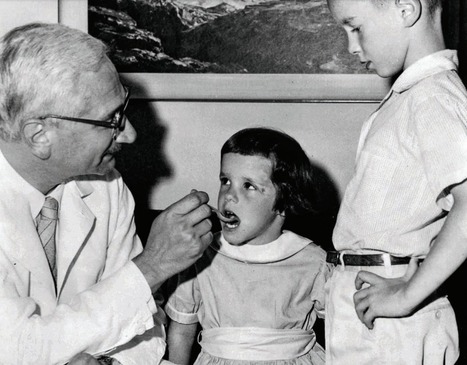Prophylactic vaccination is the most effective intervention to protect against infectious diseases. The commonly accepted paradigm is that immunization with both attenuated virus (live but with substantially reduced virulence) and inactivated (killed virus particles) vaccines induces adaptive and generally long-term and specific immunity in the form of neutralizing antibodies and/or activating pathogen-specific cellular immune responses. However, an increasing body of evidence suggests that live attenuated vaccines can also induce broader protection against unrelated pathogens likely by inducing interferon and other innate immunity mechanisms that are yet to be identified. The stimulation of innate immunity by live attenuated vaccines in general, and oral poliovirus vaccine (OPV) in particular, could provide temporary protection against coronavirus disease 2019 (COVID-19).
OPV was developed by Albert Sabin in the 1950s and consists of live attenuated polioviruses of the three serotypes. Early clinical studies showed that besides protecting against poliomyelitis, OPV reduced the number of other viruses that could be isolated from immunized children, compared with placebo recipients. Additional evidence of nonspecific effects of OPV came from the 1959 poliomyelitis outbreak in Singapore caused by type 1 poliovirus that was successfully stopped by the use of monovalent OPV that contained only type 2 poliovirus (1). Monovalent OPVs do not induce cross-neutralizing antibodies that target other virus serotypes, so the most plausible explanation was viral interference, which presumably is mediated by innate immunity.
Large-scale clinical studies of OPV for nonspecific prevention of diseases were carried out in the 1960s and 1970s. These involved more than 60,000 individuals and showed that OPV was effective against influenza virus infection, reducing morbidity 3.8-fold on average (2, 3). OPV vaccination also had a therapeutic effect on genital herpes simplex virus infections, accelerating healing. OPV not only demonstrated positive effects against viral infections but also had oncolytic properties, both by directly destroying tumor cells and by activating cellular immunity toward tumors (2). These observations were among the first examples of viral oncotherapy, which is being actively pursued.
Published in Science (June 12, 2020):



 Your new post is loading...
Your new post is loading...







